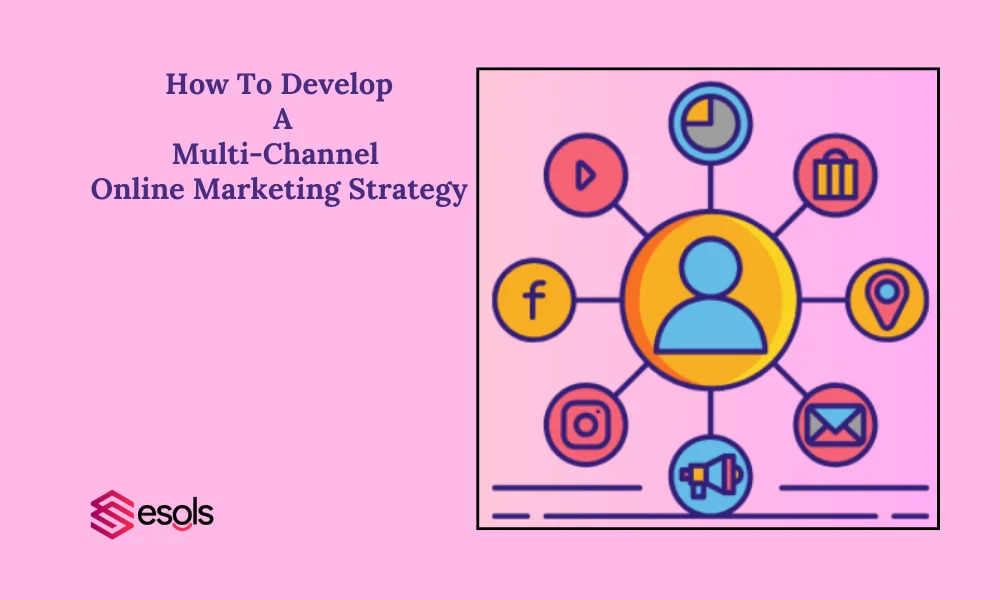In today’s highly competitive digital landscape, businesses need to expand their reach and engage customers across multiple platforms. A multi-channel online marketing strategy helps businesses connect with potential customers at various touchpoints, increasing the chances of brand visibility, engagement, and conversion.

This strategy ensures that your marketing efforts are integrated, cohesive, and tailored to different channels, allowing you to meet your audience where they are.
Table of contents
What is Multi-Channel Online Marketing?
Multi-channel online marketing involves using various digital platforms to reach and engage with your target audience. This approach leverages multiple platforms like social media, email, search engines, paid advertising, and content marketing to create a seamless experience for customers.

By adopting this strategy, businesses can increase brand awareness, deliver consistent messages, and encourage conversions across various touchpoints.
Benefits of Multi-Channel Online Marketing
A well-executed multi-channel marketing strategy offers several key benefits:
Wider Reach
By utilizing various platforms, you increase your chances of reaching a broader audience. Each channel provides access to a different segment of potential customers, increasing your brand’s visibility.
Better Customer Engagement
With a multi-channel approach, you can engage with customers on their preferred platforms, whether it’s social media, email, or a search engine. The more channels you use, the more opportunities you have to interact and build relationships with your audience.
Improved Conversion Rates
The ability to nurture leads across different platforms ensures that potential customers remain engaged at every stage of the buyer’s journey. When you provide relevant information at the right time through their preferred channel, it boosts the likelihood of conversions.
Increased Brand Consistency
Consistency across channels helps build trust and recognition. By offering a unified brand message across various touchpoints, you strengthen your brand’s image and reputation in the eyes of your audience.
Diversified Revenue Streams
Relying on a single marketing channel can be risky. With a multi-channel strategy, you spread your efforts across various platforms, making your revenue streams more stable and diversified.
Steps to Develop a Multi-Channel Online Marketing Strategy

Know Your Audience
Understanding your target audience is the foundation of any successful marketing strategy. To tailor your messaging effectively, you need to research your customers’ demographics, preferences, and online behavior.
What social media platforms do they use? Do they prefer emails, or are they more likely to engage with paid ads? Knowing these details will help you choose the right channels to focus on.
Set Clear Goals
Before diving into multiple channels, it’s essential to define your marketing goals. What are you trying to achieve with your strategy? Whether it’s increasing website traffic, boosting sales, or growing brand awareness, setting specific, measurable, and time-bound goals will keep your strategy focused.
Select the Right Channels
Not every platform will suit your business or audience. Identify the key channels where your customers are most active and tailor your approach for each. Social media channels like Facebook and Instagram work well for consumer engagement, while email marketing remains effective for building relationships.
Paid ads on Google or social media can boost visibility, and SEO ensures organic reach through search engines.
Create Tailored Content for Each Channel
While your messaging needs to be consistent, the content format should vary depending on the platform. What works for Instagram may not be effective for email marketing. For instance, blog posts are ideal for content marketing, while quick, visually engaging posts are suitable for social media. Ensure that your content aligns with the expectations of each platform to maximize engagement.
Maintain a Consistent Brand Voice
Although your content may vary between platforms, your brand voice should remain consistent. Customers should recognize your brand no matter where they encounter it. This consistency builds trust and makes it easier for customers to engage with your brand across different touchpoints.
Measure and Optimize
A critical aspect of any marketing strategy is measuring its success. Use analytics tools to track the performance of each channel, such as website traffic from SEO, social media engagement rates, or email open rates.
By analyzing this data, you can adjust your strategy for better results. For example, if one channel is underperforming, you may need to tweak your content or shift resources to a more effective platform.
Conclusion
Developing a multi-channel online marketing strategy allows businesses to reach their target audience more effectively across different platforms. By understanding your audience, selecting the right channels, and creating platform-specific content, you can engage customers at various touchpoints and maximize your marketing efforts.
Remember, consistency is key in ensuring that your brand message resonates with your audience no matter where they find you. Continuous measurement and optimization of your campaigns will help fine-tune your approach for better engagement and conversions.
Read more : How A Digital Marketing Specialist Can Fuel Your Startup’s Growth
FAQs
A multi-channel marketing strategy uses several digital platforms to reach and engage with your audience across various touchpoints.
Identify where your target audience is most active. Research customer behavior and focus on channels that align with your business goals.
Consistency across platforms builds brand recognition and trust, making it easier for customers to engage with your brand.
Tools like Google Analytics, social media insights, and email marketing platforms help track the performance of your campaigns.
Yes, by reaching your audience through their preferred channels and providing timely, relevant content, you can significantly improve conversion rates.

Smith
Welcome to my blog! As a Digital Marketing expert with over 15 years of experience, I’ve witnessed the transformative power of search engine optimization from the very beginning of my career. In this blog series, I’ll delve into the crucial role SEO , marketing plays in the success of small businesses. Join me on this journey to uncover how leveraging data-driven insights and innovative SEO techniques can propel your small business to new heights, attract a broader audience, and drive sustainable growth in the digital age. Whether you’re a seasoned entrepreneur or just starting out, you’ll find valuable insights and practical tips to enhance your Digital Marketing strategies.


